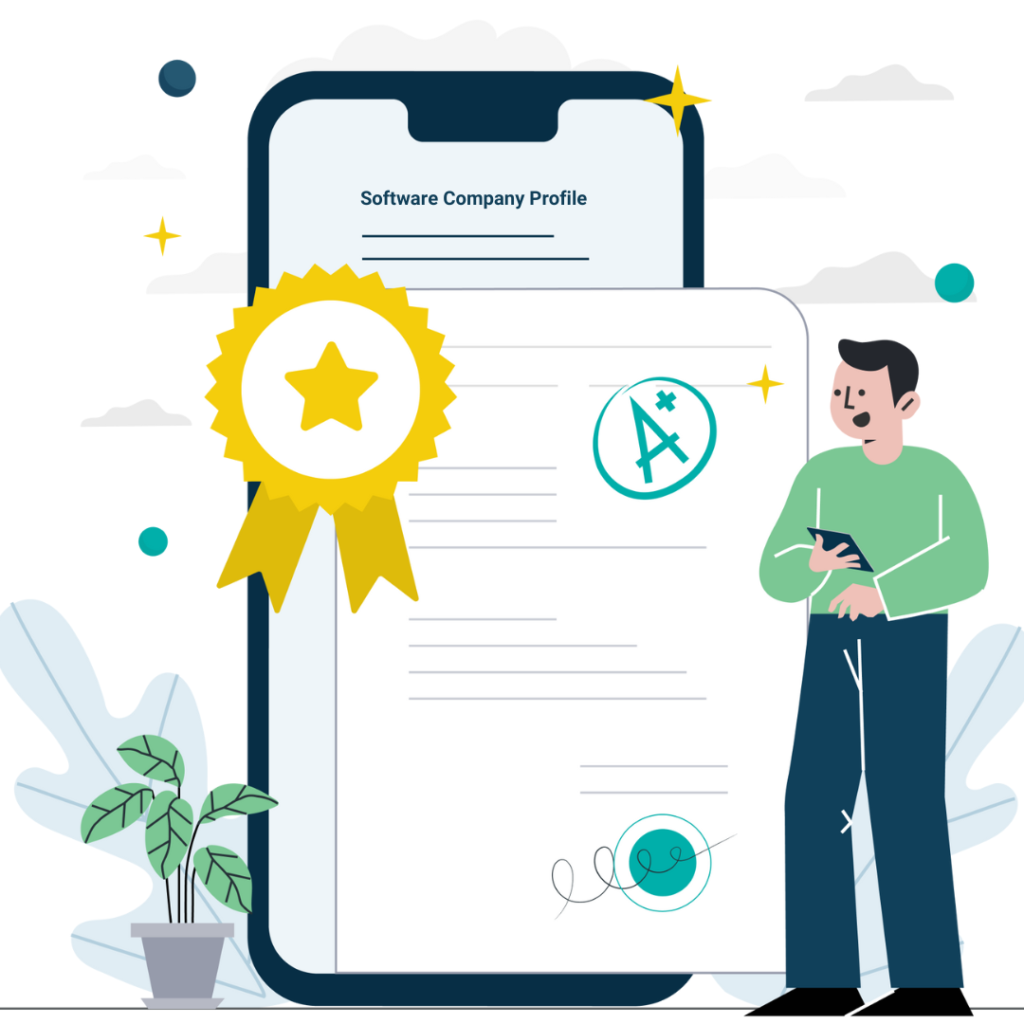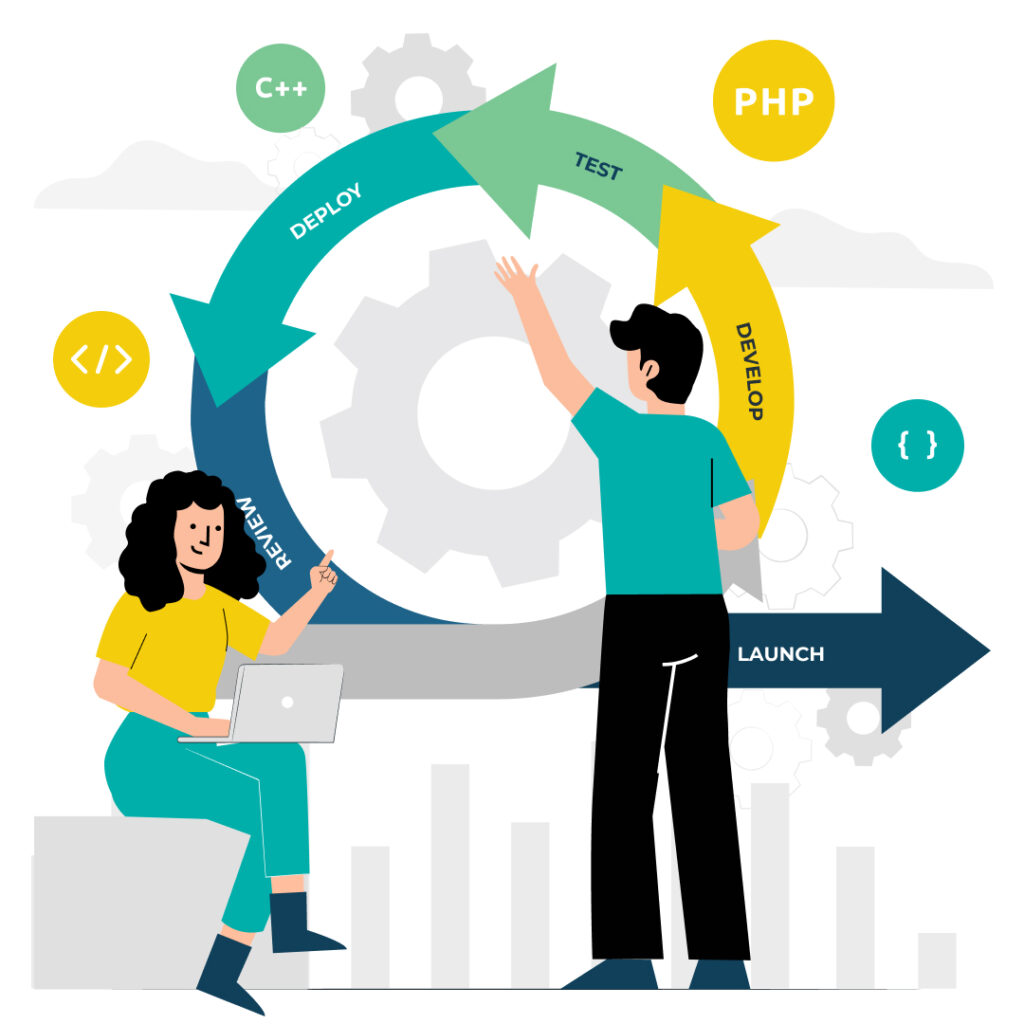Choosing the right software company for your renewal needs is a critical decision that can significantly impact your business’s efficiency and success. In today’s digital era, where technology evolves rapidly, and competition is fierce, making an informed choice is more crucial than ever. This article will guide you through the process of evaluating and selecting the best software company to partner with, ensuring you make a decision that aligns with your goals and requirements.
Importance of Choosing the Right Software Company for Renewal
Selecting the right software company is not just about finding a vendor to upgrade your systems or refresh your applications. It’s about forging a partnership with a company that understands your vision, shares your values, and possesses the technical prowess to drive your business forward. The right software partner will help you stay competitive, innovate continuously, and adapt to market changes seamlessly.
A poorly chosen software partner, on the other hand, can lead to project delays, budget overruns, and a final product that doesn’t meet your needs. This can result in lost opportunities, decreased productivity, and potentially significant financial losses. Therefore, the stakes are high, and the decision should not be taken lightly.
Overview of Key Evaluation Criteria and Steps
To ensure you make the best choice, it’s essential to evaluate potential software companies against a set of well-defined criteria. Here’s a comprehensive overview of the key steps and factors to consider:
- Assessing Experience and Expertise
- Reviewing the Company’s Portfolio
- Industry Expertise and Specialization
- Project Management and Development Processes
- Team Composition and Expertise
- Cost and Time Estimates
- Conducting Background and Reference Checks
- Importance of Communication and Collaboration
Identifying Key Criteria for Evaluating Software Companies
To make an informed decision, it’s essential to evaluate potential partners based on specific, well-defined criteria. This section will guide you through the key aspects to consider when assessing software companies, helping you identify the best fit for your needs.
Assessing Experience and Expertise
Importance of Company Experience in Software Development
Experience is a vital factor when evaluating a software company. An experienced company brings a wealth of knowledge and a proven track record of handling various challenges that may arise during the development process. Companies with extensive experience are more likely to deliver high-quality, reliable solutions, as they have honed their skills over numerous projects.
When assessing experience, consider the following:
- Years in Business: How long has the company been operating in the software development industry?
- Types of Projects: Has the company handled projects similar to yours in scope and complexity?
- Client Base: Does the company have a diverse range of clients, including those from your industry?
An experienced company can provide valuable insights, foresee potential issues, and implement best practices to ensure the success of your project.
Evaluating Expertise in Relevant Technologies and Industries
Beyond general experience, it’s crucial to assess a company’s expertise in the specific technologies and industries relevant to your project. This ensures they have the necessary skills to meet your unique requirements and can adapt to the specific demands of your sector.
Key aspects to evaluate include:
- Technological Proficiency: Does the company have expertise in the programming languages, frameworks, and tools essential for your project? For instance, if your project involves mobile app development, does the company excel in platforms like iOS and Android?
- Industry Knowledge: How well does the company understand the nuances and challenges of your industry? A company well-versed in your industry will be better equipped to develop solutions that comply with regulations and meet industry standards.
By focusing on these areas, you can ensure that the software company possesses the technical and industry-specific knowledge needed to deliver a successful project.
Reviewing the Company’s Portfolio
Importance of a Strong Portfolio
A company’s portfolio is a window into their capabilities and the quality of their work. A robust portfolio demonstrates the company’s experience, versatility, and ability to deliver successful projects. When reviewing a portfolio, look for evidence of completed projects that align with your needs.
A strong portfolio indicates that the company can handle projects of various sizes and complexities, showcasing their adaptability and problem-solving skills. It also provides reassurance that they have delivered successful solutions to other clients, which can instill confidence in their ability to meet your expectations.
Key Indicators of Successful Past Projects
When evaluating a company’s portfolio, consider the following indicators of success:
- Diversity of Projects: Has the company worked on a range of projects, including those similar to yours? A diverse portfolio suggests versatility and the ability to adapt to different project requirements.
- Client Testimonials and Case Studies: Look for detailed case studies and client testimonials that highlight the company’s achievements. Positive feedback from previous clients is a strong indicator of reliability and quality.
- Innovative Solutions: Does the portfolio showcase innovative and creative solutions? This demonstrates the company’s ability to think outside the box and deliver unique, effective results.
By thoroughly reviewing the portfolio, you can gauge the company’s capability to deliver high-quality projects that meet your specific needs.
Industry Expertise and Specialization
Benefits of Selecting a Company with Industry-Specific Knowledge
Choosing a software company with industry-specific knowledge offers several advantages. Such companies have a deeper understanding of the regulatory environment, industry standards, and common challenges within your sector. This expertise allows them to develop tailored solutions that address your unique needs more effectively.
Benefits include:
- Regulatory Compliance: Companies familiar with your industry are more likely to develop solutions that comply with relevant regulations and standards, reducing the risk of legal issues.
- Efficient Problem Solving: Industry-specific knowledge enables the company to anticipate and address common challenges, leading to smoother project execution.
- Targeted Solutions: A company with industry expertise can create solutions that are more closely aligned with your business goals and operational requirements.
How to Determine the Company’s Industry Expertise
To assess a company’s industry expertise, consider the following steps:
- Review Past Projects: Examine the company’s portfolio for projects within your industry. Pay attention to the complexity and success of these projects.
- Ask for References: Request references from clients in your industry. Speaking directly with these clients can provide valuable insights into the company’s performance and industry knowledge.
- Evaluate Industry Certifications: Check if the company holds any industry-specific certifications or memberships in relevant professional organizations. These credentials can be an indicator of their commitment to staying current with industry trends and standards.
By following these steps, you can identify software companies with the necessary industry expertise to deliver effective and compliant solutions for your projects.
Remember, Identifying the key criteria for evaluating software companies is essential for selecting a partner that aligns with your business goals and technical requirements. By assessing experience and expertise, reviewing the company’s portfolio, and considering industry-specific knowledge, you can make an informed decision that sets the stage for a successful collaboration. Remember, the right software company will not only meet your current needs but will also support your long-term growth and innovation.
Key Questions to Ask Potential Development Partners
Asking the right questions when evaluating potential development partners is essential for selecting the best team for your project. By understanding their project management and development processes, team composition and expertise, and cost and time estimates, you can make an informed decision that aligns with your goals and requirements. Remember, a well-chosen development partner will not only meet your immediate needs but also support your long-term success.
Project Management and Development Processes
Inquiring About Development Methodologies (Agile, Scrum, etc.)
When evaluating potential development partners, it’s essential to understand their approach to project management and development. Different methodologies, such as Agile, Scrum, and Waterfall, offer unique benefits and challenges. Here are key questions to ask:
- What development methodologies do you use? Understanding whether they use Agile, Scrum, Waterfall, or a hybrid approach can give you insight into their flexibility and how they handle changes during the project.
- How do you handle changes in project scope? Agile and Scrum methodologies are known for their adaptability to changes, while Waterfall is more rigid. Ensure the company’s approach aligns with your needs for flexibility.
- Can you provide examples of successful projects using these methodologies? This will help you gauge their experience and proficiency with the chosen methodologies.
By understanding the development methodologies, you can assess how well the company can adapt to changes and deliver a high-quality product.
Understanding Project Management Tools and Practices
Effective project management is critical for keeping your project on track and within budget. Inquire about the tools and practices the company uses to manage projects:
- What project management tools do you use? Common tools include Jira, Trello, Asana, and Microsoft Project. These tools help track progress, manage tasks, and facilitate communication.
- How do you ensure project transparency and accountability? Ask about their practices for regular updates, progress reports, and how they handle project documentation.
- Can you provide examples of how you have managed past projects? This will give you a sense of their organizational skills and ability to meet deadlines.
Understanding the tools and practices used by the development partner can help you determine their efficiency and reliability in managing projects.
Team Composition and Expertise
Questions to Determine Team Structure and Skills
The composition and expertise of the development team are critical to the success of your project. Here are key questions to ask:
- What is the structure of your development team? Understanding the roles and hierarchy within the team can give you insight into their workflow and how tasks are managed.
- What are the qualifications and experience of the team members? Ensure that the team has the necessary skills and experience relevant to your project. Ask about specific expertise in technologies, frameworks, and industry knowledge.
- Can you provide examples of team members’ previous work? Reviewing past work can help you assess the quality and relevance of their experience.
By evaluating the team structure and skills, you can ensure that the development partner has the right people to deliver a successful project.
Assessing the Availability of Key Personnel for Your Project
The availability of key personnel is crucial for the timely and successful completion of your project. Here are questions to consider:
- Who will be the key personnel assigned to my project? Identify the project manager, lead developers, and other critical team members.
- What is their availability during the project timeline? Ensure that the key personnel are not overcommitted and can dedicate sufficient time to your project.
- How do you handle resource allocation and potential conflicts? Understanding their approach to managing resources can help you assess their ability to handle any issues that may arise.
Assessing the availability of key personnel ensures that the development partner can commit the necessary resources to your project.
Cost and Time Estimates
Understanding the Basis of Cost Estimates
Cost is a significant factor in any project. Understanding how a development partner estimates costs can help you avoid unexpected expenses. Key questions include:
- How do you estimate project costs? Ask about the factors they consider, such as the complexity of the project, required technologies, and the estimated number of hours.
- Can you provide a detailed breakdown of costs? A transparent breakdown can help you understand where your money is going and identify any potential areas for cost savings.
- What are the payment terms and milestones? Understanding the payment schedule and milestones can help you manage your budget effectively.
By understanding the basis of cost estimates, you can ensure that the project stays within budget and avoid any financial surprises.
Discussing Timelines and Delivery Schedules
Timelines are crucial for planning and managing your project. Here are key questions to ask about timelines and delivery schedules:
- What is the estimated timeline for the project? Get a clear understanding of the overall project timeline, including key milestones and deliverables.
- How do you handle project delays? Ask about their approach to managing and mitigating delays to ensure timely delivery.
- Can you provide a detailed project schedule? A detailed schedule can help you track progress and ensure that the project stays on track.
Discussing timelines and delivery schedules helps you set realistic expectations and ensures that the development partner can deliver the project on time.
Conducting Background and Reference Checks
When selecting a software company for your project, conducting thorough background and reference checks is essential. These checks help you ensure that the company you choose is reputable, reliable, and capable of delivering quality results. This article will guide you through the key steps and considerations in evaluating a company’s reputation, contacting previous clients, and assessing legal and financial stability.
Evaluating Company Reputation
Researching Online Reviews and Testimonials
In today’s digital age, online reviews and testimonials are invaluable resources for evaluating a company’s reputation. They provide insights into the experiences of previous clients and can highlight the strengths and weaknesses of the company.
- Start with Review Platforms: Platforms such as Google Reviews, Clutch, G2, and Trustpilot can offer a wealth of information. Look for reviews that are detailed and provide specific examples of the company’s work.
- Company Website Testimonials: While testimonials on the company’s website can be helpful, remember that these are often curated. Cross-reference these testimonials with independent reviews for a more balanced view.
- Social Media and Forums: Check the company’s social media profiles and relevant industry forums. Pay attention to how the company interacts with clients and handles feedback.
Reading a variety of reviews and testimonials can help you form a comprehensive picture of the company’s reputation and customer satisfaction.
Checking for Any Red Flags or Consistent Issues
While positive reviews are important, it’s equally crucial to look out for any red flags or consistent issues that may indicate potential problems.
- Recurrent Complaints: Pay attention to any recurring complaints across different reviews. Issues such as missed deadlines, poor communication, or subpar quality can be significant red flags.
- Negative Patterns: Look for patterns in negative feedback. A single bad review might be an anomaly, but multiple similar complaints suggest a deeper issue.
- Company Response: Observe how the company responds to negative reviews. A professional and constructive response can indicate good customer service and a willingness to resolve issues.
Identifying red flags early can save you from potential headaches and ensure you choose a reliable partner for your project.
Contacting Previous Clients
Key Questions to Ask During Reference Checks
Speaking directly with previous clients can provide deeper insights into a company’s performance and reliability. Here are some key questions to ask:
- Project Details: Can you describe the project you worked on with the company? Understanding the scope and nature of the project helps gauge its relevance to your needs.
- Communication: How effective was the company’s communication throughout the project? Good communication is critical for successful collaboration.
- Timeliness: Did the company meet the project deadlines? Timely delivery is a crucial factor in project management.
- Quality of Work: Were you satisfied with the quality of the final product? Assessing the quality of work helps ensure that the company can meet your standards.
- Problem-Solving: How did the company handle any challenges or issues that arose during the project? This provides insight into their problem-solving abilities and resilience.
- Overall Satisfaction: Would you work with the company again? This is often the most telling question, as it reflects the client’s overall experience and satisfaction.
Asking these questions can help you gather valuable information and make a well-informed decision.
How to Interpret Feedback from Previous Clients
Interpreting feedback from previous clients requires a balanced approach. Here’s how to effectively analyze the information you receive:
- Consistency: Look for consistent themes in the feedback. If multiple clients mention strong project management or excellent communication, it’s a good sign. Conversely, consistent negative comments should be taken seriously.
- Specificity: Specific feedback is more valuable than general comments. Detailed responses about the company’s strengths and weaknesses provide clearer insights.
- Context: Consider the context of the feedback. For example, a delay in project delivery might be significant in one case but understandable in another due to external factors.
- Balance: Weigh both positive and negative feedback. No company is perfect, but the overall balance of the feedback can indicate whether the company is a good fit for your project.
By carefully interpreting client feedback, you can gain a realistic understanding of the company’s performance and reliability.
Legal and Financial Stability
Ensuring the Company’s Legal Standing and Compliance
Verifying the legal standing and compliance of a software company is crucial to avoid legal complications and ensure smooth project execution.
- Company Registration: Confirm that the company is legally registered and has the necessary licenses to operate. This can typically be verified through government or industry regulatory bodies.
- Compliance with Regulations: Ensure that the company complies with relevant industry regulations and standards. This is particularly important in highly regulated sectors such as healthcare and finance.
- Litigation History: Check for any past or ongoing litigation involving the company. Legal disputes can be a red flag and may indicate underlying issues.
Ensuring the company’s legal compliance protects your project from potential legal risks and ensures a professional partnership.
Assessing Financial Stability and Longevity
A company’s financial stability is a key indicator of its ability to complete your project and provide ongoing support.
- Financial Records: Request access to the company’s financial records, such as balance sheets, income statements, and cash flow statements. Stable and healthy financial records indicate a low risk of bankruptcy or financial issues.
- Longevity: Consider the company’s history and how long it has been in business. Companies with a long track record are generally more reliable and stable.
- Investment and Growth: Assess the company’s investment in its own growth, such as research and development or expanding its workforce. This indicates a commitment to staying competitive and innovative.
Evaluating financial stability ensures that the company has the resources and commitment to deliver your project successfully and provide future support.
Importance of Communication and Collaboration in the Renewal Process
Effective communication and collaboration are vital components of a successful renewal process. This phase often involves significant changes and updates, making it crucial to maintain clear and open lines of communication.
By establishing clear communication channels, leveraging the right tools, maintaining transparency, and fostering a collaborative working environment, you can ensure that your project progresses smoothly and successfully. These practices not only enhance the efficiency and quality of your project but also build strong, trusting relationships among all stakeholders.
Establishing Clear Communication Channels
Clear communication channels are the backbone of any successful project. They ensure that all stakeholders are aligned, informed, and able to contribute effectively.
Setting Up Regular Update Meetings and Reports
Regular update meetings and reports are critical for maintaining transparency and keeping everyone on the same page.
- Schedule Consistent Meetings: Set up regular meetings to discuss progress, address any issues, and plan the next steps. Weekly or bi-weekly meetings are often effective, depending on the project’s complexity and pace.
- Use Structured Agendas: Prepare and share an agenda before each meeting to ensure that all necessary topics are covered. This helps keep meetings focused and productive.
- Provide Detailed Reports: After each meeting, distribute detailed reports summarizing the discussions, decisions made, and action items. This ensures that everyone has a clear understanding of the project’s status and what needs to be done next.
Regular meetings and reports not only keep the project on track but also foster a sense of accountability among team members.
Tools and Platforms for Effective Communication
Choosing the right tools and platforms can significantly enhance communication efficiency.
- Project Management Tools: Tools like Trello, Asana, and Jira help in organizing tasks, setting deadlines, and tracking progress. They provide a visual overview of the project, making it easier to manage and communicate.
- Communication Platforms: Slack, Microsoft Teams, and Zoom facilitate real-time communication and collaboration. These platforms support text, voice, and video communication, allowing for flexible and immediate interactions.
- Document Sharing and Collaboration: Google Drive, Dropbox, and OneDrive enable seamless sharing and collaboration on documents. These tools ensure that everyone has access to the latest versions of all project-related documents.
Using the right tools can streamline communication, reduce misunderstandings, and enhance overall project efficiency.
Collaboration and Transparency
Collaboration and transparency are key to building trust and ensuring the smooth execution of projects. They foster a positive working environment and help in addressing challenges proactively.
Importance of Transparency in Project Status and Challenges
Transparency about the project’s status and challenges is crucial for making informed decisions and maintaining trust.
- Openly Share Progress: Regularly update all stakeholders on the project’s progress. This includes celebrating milestones achieved and discussing any delays or obstacles.
- Address Challenges Head-On: Be upfront about any issues or challenges the project is facing. Discuss potential solutions and involve relevant stakeholders in problem-solving.
- Provide Access to Project Data: Ensure that all team members have access to up-to-date project data. This includes timelines, budgets, and resource allocations.
Transparency helps in managing expectations and enables quick and effective responses to any issues that arise.
Encouraging a Collaborative Working Environment
A collaborative working environment boosts morale, fosters innovation, and leads to better project outcomes.
- Promote Open Communication: Encourage team members to share their ideas, feedback, and concerns openly. This creates a culture of inclusivity and respect.
- Foster Team Spirit: Organize team-building activities and regular informal gatherings to strengthen relationships and build camaraderie among team members.
- Recognize and Reward Contributions: Acknowledge and reward the contributions of team members. This can be through formal recognition programs or informal appreciation during meetings.
A collaborative environment ensures that everyone feels valued and motivated, leading to higher productivity and better project results.
Additional Considerations for Selecting the Right Software Company
Choosing the right software company for your project involves more than just evaluating their expertise and portfolio. There are several additional considerations that can significantly impact the success of your project.
By evaluating technological compatibility, ensuring future-proof solutions, understanding support and maintenance services, and assessing long-term partnership potential, you can make a well-informed decision that aligns with your business goals and ensures sustained success. Taking these additional considerations into account will help you build a strong, lasting relationship with your software development partner, ultimately leading to more successful project outcomes.
Evaluating Technological Compatibility
Technological compatibility is a critical factor in ensuring that your chosen software company can integrate seamlessly with your existing systems and future technological needs.
Ensuring Compatibility with Existing Systems and Infrastructure
When selecting a software company, it’s essential to ensure that their solutions are compatible with your current systems and infrastructure. Here are some key points to consider:
- Assess Current Systems: Conduct a thorough assessment of your existing systems and infrastructure. Identify the technologies, platforms, and tools you currently use.
- Integration Capabilities: Ask potential software companies about their experience with integrating new solutions into existing environments. Specifically, inquire about their familiarity with your current technologies.
- Interoperability: Ensure that the proposed software can communicate and operate with your existing systems without significant issues. This includes databases, operating systems, and other software applications.
- Customization Options: Check if the software company offers customization services to tailor the solution to your specific needs and existing infrastructure.
By ensuring compatibility with your current systems, you can avoid potential disruptions and additional costs associated with extensive modifications or replacements.
Future-Proofing Your Technology Stack
Future-proofing your technology stack is crucial to ensure that your investment remains relevant and effective as technology evolves. Here’s how to approach this consideration:
- Scalability: Evaluate whether the software solution can scale with your business growth. Ask about the company’s approach to handling increased workloads, additional users, and expanded functionalities.
- Upgradability: Ensure that the software is designed to accommodate future updates and upgrades. This includes both minor updates and major version changes.
- Technology Trends: Choose a software company that stays current with the latest technology trends and innovations. This indicates their ability to provide cutting-edge solutions that can adapt to future changes.
- Vendor Roadmap: Ask about the company’s product roadmap and future plans. Understanding their long-term vision can help you assess whether they are committed to ongoing development and improvement.
Future-proofing your technology stack ensures that your investment remains valuable and reduces the risk of obsolescence.
Post-Launch Support and Maintenance
Post-launch support and maintenance are vital for the long-term success and sustainability of your software solution. Here’s what you need to consider:
Understanding the Company’s Support and Maintenance Services
Reliable support and maintenance services are essential to address any issues that arise after the software is launched. Here’s what to look for:
- Support Levels: Inquire about the different levels of support the company offers. This may include basic support, extended support, and premium support packages.
- Response Times: Understand the company’s response times for different types of support requests. Prompt responses are critical for minimizing downtime and resolving issues quickly.
- Service Level Agreements (SLAs): Review the company’s SLAs to understand their commitments to uptime, issue resolution times, and overall service quality.
- Maintenance Plans: Ask about the company’s maintenance plans, which may include regular updates, security patches, and performance optimizations.
By understanding the company’s support and maintenance services, you can ensure that your software remains functional and secure over time.
Evaluating the Long-Term Partnership Potential
Selecting a software company is not just about the immediate project; it’s about building a long-term partnership that can support your business goals. Here’s how to evaluate this potential:
- Company Stability: Assess the company’s financial stability and market presence. A stable company is more likely to provide consistent support and services over the long term.
- Client Retention: Look at the company’s client retention rates and ask for references from long-term clients. High retention rates indicate satisfied customers and reliable service.
- Continuous Improvement: Choose a company that demonstrates a commitment to continuous improvement and innovation. This ensures that they will evolve with your needs and industry changes.
- Collaborative Approach: Evaluate the company’s willingness to work collaboratively with your team. A strong partnership is built on open communication, mutual respect, and shared goals.
Evaluating the long-term partnership potential helps ensure that the software company will continue to meet your needs and contribute to your success over time.
Conclusion
In conclusion, selecting the right software company for renewal in today’s digital era is crucial for the success of your project and business. We’ve explored key criteria such as experience, portfolio strength, and industry expertise, essential questions to ask potential partners, and the importance of thorough background checks.
Effective communication and collaboration are vital throughout the renewal process to ensure transparency and efficiency. Additionally, considering technological compatibility, post-launch support, and long-term partnership potential are essential for sustained success.
By prioritizing these factors, you can make informed decisions that align with your business goals and pave the way for growth in the dynamic digital landscape.
When evaluating potential software companies for your digital renewal needs, Softwareseni emerges as a standout choice. As a multinational software company, Softwareseni offers a comprehensive range of services including website development, mobile app development, and custom software solutions. With over a decade of experience and a proven track record of successful projects, Softwareseni brings a wealth of expertise to every client engagement.
About SoftwareSeni.
SoftwareSeni is software solutions with more than 10 years of expertise, with 200+ professional staff and more than 1200 projects delivered. SoftwareSeni empowers diverse industries – automotive, real estate, healthcare, education, F&B, hospitality, tourism, and more. We specialise in WordPress, Laravel, Node.js, React.js, NET. SoftwareSeni services include ecommerce website development, web app creation, mobile app development (Android & iOS), and developer team extension.
Why Choose SoftwareSeni?
1. Tailored Services to Suit Your Needs
We understand that every business has unique digital needs. With a range of customizable services, from Team Extension and Staff Augmentation to MVP Development, Custom Software Development, and Web, Mobile (Android & iOS) App, and E-commerce Development, we are ready to support your digital business transformation. Learn more about SoftwareSeni’s services
2. Solutions for Various Industries
We have extensive experience across various industries, including property, retail, automotive, media, healthcare, and more. Our diverse services enable us to be a trusted partner that can provide the right solutions for your industry needs. Learn more about SoftwareSeni’s solutions
3. Experienced Professional Team
With over 200 dedicated professional staff, we are ready to help you tackle every digital challenge. Our experience in managing over 1200 projects ensures that you get the best results from our team. Learn more about SoftwareSeni.
4. Trusted by Many Large Companies
Leading companies such as Astra Motor, Downsizing, RedBalloon, News.com.au, and many others have entrusted their digital transformation to us. Our experience in working with various large companies demonstrates our ability to deliver high-quality solutions. Learn more about SoftwareSeni’s portfolio
5. Commitment to Security and Quality
Security is our top priority. With ISO 27001 certification and being an official AWS Consulting Partner, we ensure that every project is developed to the highest security and quality standards. You can rest assured knowing that your digital systems are in good hands. Learn more about SoftwareSeni’s Commitment to Security
Join Us and Transform Your Business!
Don’t let your business fall behind in this digital era. Choose SoftwareSeni as your digital partner and enjoy services tailored to your needs, supported by a professional team, as well as reliable and secure solutions. Contact us today and start your digital journey confidently.












